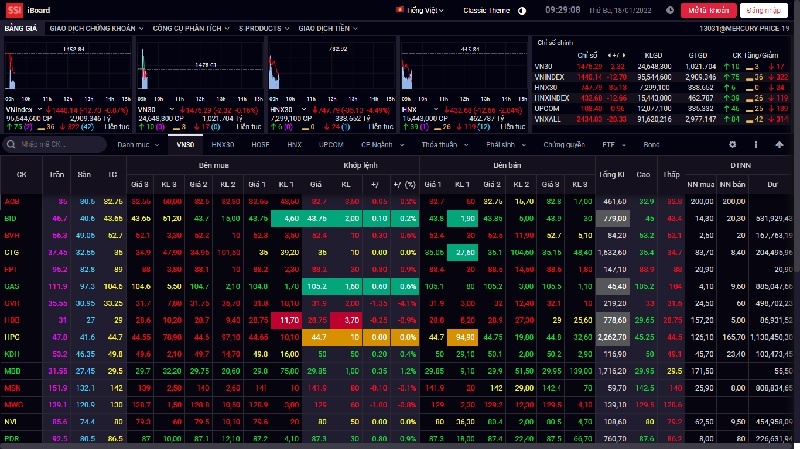FLC share sell surprise incites scrutiny of process
 |
| FLC share sell surprise incites scrutiny of process - illustration photo |
Quyet, whose group owns a string of huge resorts as well as Bamboo Airways, sold 75 million FLC shares without reporting the move to the State Securities Commission of Vietnam (SSC) first.
The Ho Chi Minh City Stock Exchange cancelled the sale and froze Quyet’s account, as major shareholders of listed companies are legally required to announce expected transactions in advance.
Quyet had planned to sell a total of 175 million of his FLC shares between January 10 and 17, reducing his ownership in the corporation from 30 per cent to just 5.7 per cent, but did not alert the SSC until he had already started the trading, which caused FLC’s share price to dip drastically.
A representative of the SSC on January 12 said, “This is an unprecedented intervention in the Vietnamese stock market. Both regulators and authorised agencies have urgently executed various solutions to reach such a conclusion in a bid to ensure the market’s transparency.”
Following the cancellation of the share sale, the Ho Chi Minh City Stock Exchange Steering Committee cooperated with the Vietnam Securities Depository (VSD) and other securities firms to evaluate reciprocal transactions from Quyet’s account in order to invalidate the purchase.
Many retail investors also reported that they received notices of their refunds from the FLC stock purchase session on January 10, which are accounts for reciprocal share purchases coming from Quyet’s sell-off.
Nguyen Duc Chi, Deputy Minister of Finance (MoF), has said that the ministry would deal with the situation in a severe and comprehensive fashion in line with the terms of the legislation.
“The SSC has been tasked by the MoF to investigate and offer remedies to avoid the occurrence of such infractions in the future. Those who are prohibited from trading will be unable to engage in regular trading activities. Offences associated with fraudulent stock sell-offs will be properly addressed,” Chi emphasised. “We will take it seriously as a major overhaul of conflict-of-interest regulations and it will be used to safeguard market stability and integrity.”
The FLC chairman could be fined VND1.5 billion ($652,000) due to illicit trading actions in accordance with Decree No.128/2021/ND-CP, which only took effect on January 1, amending and supplementing Decree No.156/2020/ND-CP dated December 2020 on government penalties for administrative breaches in the stock market. Despite this, market watchdogs claim that the amount is insufficient to serve as a deterrent.
Many retail investors are well aware of market manipulation and securities fraud, yet the administrative sanctions pale in comparison to the losses. For instance, Ho Chi Minh Securities Corporation chairman Nguyen Quoc Huan was fined $870 in October 2021 for selling 40,000 shares of the firm in two consecutive months without notifying before the anticipated move.
In Vietnam’s stock market, transactions are conducted through a multilateral clearing facility (a trading system that facilitates exchange of financial instruments between multiple parties), which implies that buyers and sellers are unaware of who they are buying from and who they are selling to.
Technically, state authorities such as the VSD and other securities firms may conduct independent transactions, as Quyet demonstrated. However, this is exhausting, time-consuming, perplexing, and might erode investors’ confidence.
In the wake of Quyet’s transaction on January 10, several securities firms have expressed concerns about the possibility that a substantial sum of money has been provided to withdraw from the account or purchase further shares.
The significance of the transaction on January 10 may potentially be considered by the regulator as justification for taking a tough stance, according to a source from the VSD. Specifically, Vietnam has yet to be upgraded to an emerging market classification by Morgan Stanley Capital International. Despite the local government’s efforts and determination to improve the threshold for years, Vietnam’s reputation as a frontier market remains.
What the stars mean:
★ Poor ★ ★ Promising ★★★ Good ★★★★ Very good ★★★★★ Exceptional
Related Contents
Latest News
More News
- Private capital funds as cornerstone of IFC plans (February 20, 2026 | 14:38)
- Priorities for building credibility and momentum within Vietnamese IFCs (February 20, 2026 | 14:29)
- How Hong Kong can bridge critical financial centre gaps (February 20, 2026 | 14:22)
- All global experiences useful for Vietnam’s international financial hub (February 20, 2026 | 14:16)
- Raised ties reaffirm strategic trust (February 20, 2026 | 14:06)
- Sustained growth can translate into income gains (February 19, 2026 | 18:55)
- The vision to maintain a stable monetary policy (February 19, 2026 | 08:50)
- Banking sector faces data governance hurdles in AI transition (February 19, 2026 | 08:00)
- AI leading to shift in banking roles (February 18, 2026 | 19:54)
- Digital banking enters season of transformation (February 16, 2026 | 09:00)

 Tag:
Tag:



















 Mobile Version
Mobile Version